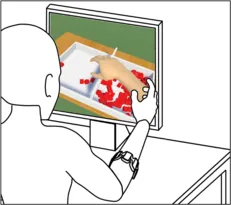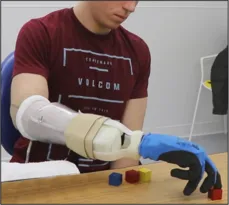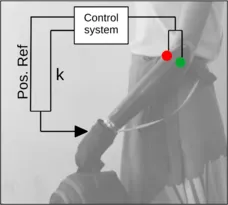Research Areas
Bionic Hands Design
Technological advancements have led to the development of dexterous bionic hands and sensory-motor interfaces that try to replicate the extraordinary functionalities of biological limbs thanks to the combination of multiple actuators, sensors and advanced myoelectric control algorithms. However, in the last few decades, many robotics research groups have focused on minimalist design approaches: while retaining many of the advantages of anthropomorphic design, a principled simplification in both design ... [+]
Myoelectric Control Strategies
Our lab is actively involved in developing novel myoelectric control strategies that can enhance the performance and functionality of upper limb prostheses. We use surface electromyography (sEMG) to detect the electrical signals generated by muscles during voluntary contractions, and use these signals to control the movement of the prosthetic hand. Most commercial solutions used today in prosthetics are equipped with several degrees of actuations (DoA), controlled through switching techniques, as... [+]

Virtual Reality for Neurorehabilitation
An additional goal is to explore the rehabilitation experience using virtual reality systems (i.e. immersive virtual reality) and provide innovative solutions to patients. VR offers a highly immersive and engaging environment that can provide patients with a more motivating and enjoyable experience. Our research focuses on developing customized VR-based rehabilitation programs that target specific motor and cognitive functions. [+]

